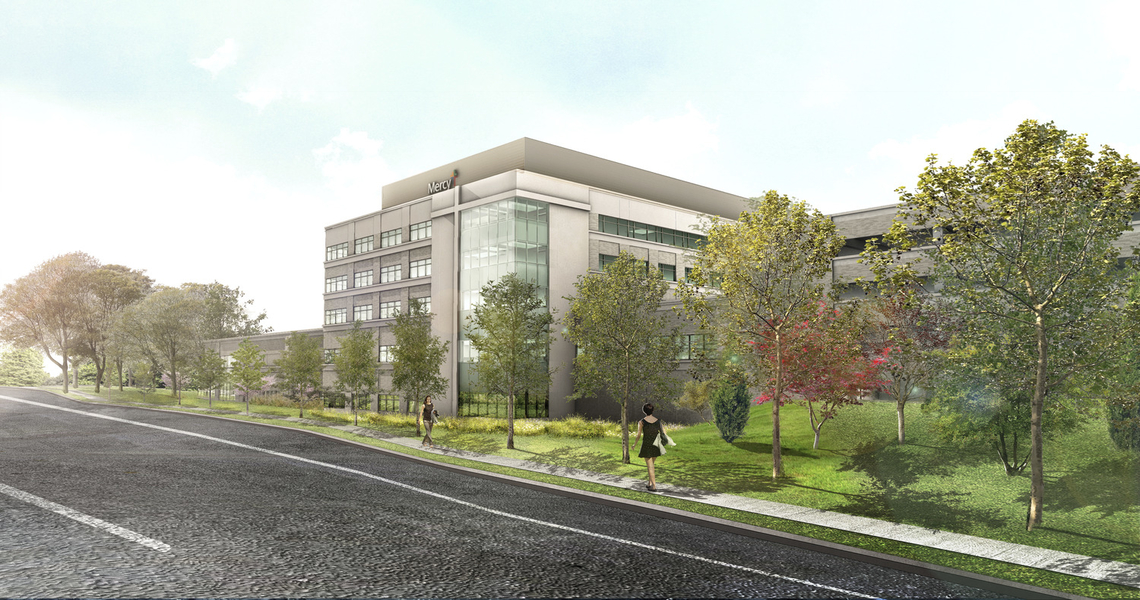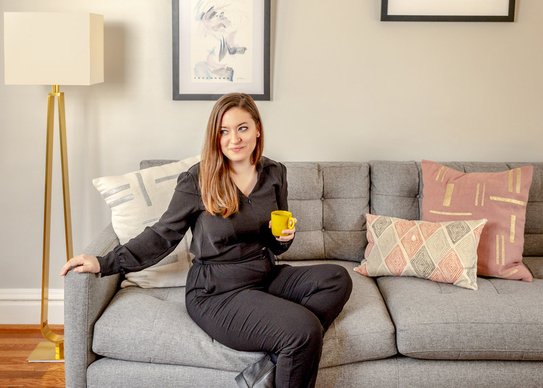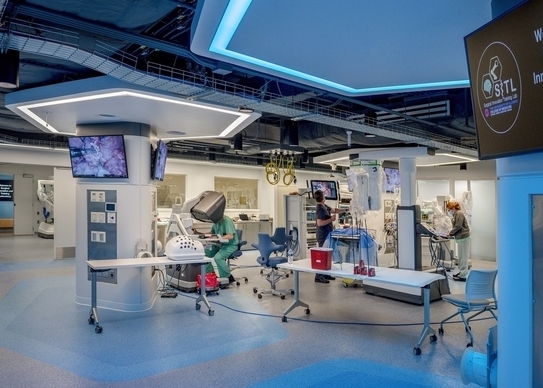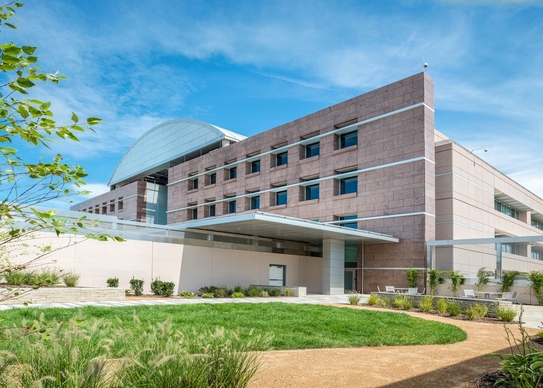Many healthcare organizations are thinking about what their health real estate of the future look like, and so are we. Mike Pukszta, director of our Health Practice, and Allison Mendez, a cross-market designer, are part of these conversations every day and shared some of their insights with Design Disruption, a webcast/podcast series done in partnership with ArchDaily.
Hosts Sam Lubell and Prathima Manohar covered a wide swath of topics with Mike and Allison. Here are a few key takeaways from the conversation:
- Mike on how COVID will shape hospitals going forward: “What we’re really looking at is something I call elasticity. Healthcare systems need to grow and shrink as demand changes. And the demand could be a pandemic, the demand could be some mass casualty event… it could be any number of events, pandemics are just one of them. as we think about designing healthcare, we often think about capacity for elasticity. What can we grow in areas where there’s increased demand, and how much of that growth has to happen in a hospital?We may need to create pop-up locations or society needs other answers that doesn’t drive everyone to a hospital that only has so much capacity… it’s unrealistic to say we’re going to resize our entire healthcare system for the next pandemic, it’s not a realistic way to spend our resources. We probably do need more robust engineering systems and changes to our just-in-time supply chain system.”
- Allison on the future of telehealth: “We are becoming more comfortable with remote relationships. What we’re seeing is the ability to collaborate is more essential than the ability to see your doctor virtually. Even though a lot of the time the patient still wants to and needs to come in and see their doctor, but now you can start to connect with other caregivers across a network and get input in real time… silver linings in a really tough year.”
- Allison on biophilia contributing to wellness: “Biophilia is getting renewed attention. I think connection to nature is important but connection to place is also very important. The experience of someone in a place, it’s not just you’re bringing nature in, you’re creating an experience for an individual in a space. The atrium [in the University of Kansas Hospital’s Strawberry Hill Behavioral Health Hospital) is a landmark, so when you’re feeling lost, especially in an inpatient behavioral space, t’s not only a green space but also an orientation space. I hope something that comes out of this is empathy for who we’re designing for.”
- Mike on health not equaling healthcare: “To have a healthy society, it actually has very little to do with having good hospitals. If you think about the factors that influence health, some is genetics, some is environment, some is access to care, some is lifestyle. If you look at health in its entirety, having a great healthcare system doesn’t mean you can create a healthy overall environment.When we look at societal changes we need to promote, I don’t think we need to build bigger hospitals, I think we need to promote health so people don’t need big hospitals for the wrong reasons. Within our practice, we use a concept called Living-Centered Design, it’s promoting living through great design. That’s not designing better hospitals, it’s designing better environments.”
To watch the whole show and hear more from Mike and Allison, watch the show here.




